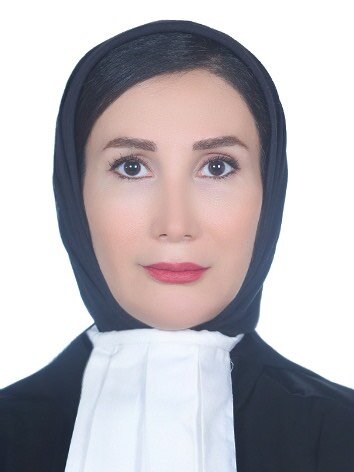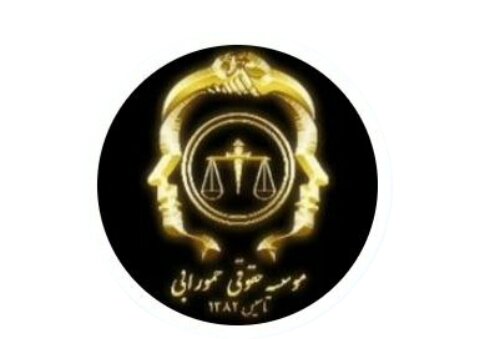Best Licensing Lawyers in Iran
Share your needs with us, get contacted by law firms.
Free. Takes 2 min.
Or refine your search by selecting a city:
List of the best lawyers in Iran
About Licensing Law in Iran
Licensing in Iran refers to the legal process of granting permission to individuals or businesses to engage in certain activities or use specific intellectual property. It is regulated by various laws and regulations to ensure compliance and protect the rights of both the licensor and the licensee.
Why You May Need a Lawyer
You may need a lawyer for licensing in Iran if you are entering into a licensing agreement, facing a dispute related to licensing, or need guidance on navigating the complex legal requirements. A lawyer can help you understand your rights, obligations, and options in licensing matters.
Local Laws Overview
In Iran, licensing is governed by the Civil Code, Commercial Code, and other relevant regulations. The key aspects of local laws that are particularly relevant to licensing include intellectual property rights, contract law, and dispute resolution mechanisms. It is essential to seek legal advice to ensure compliance with these laws.
Frequently Asked Questions
Q: What is a licensing agreement?
A licensing agreement is a legal contract between a licensor (the owner of the intellectual property) and a licensee (the party obtaining the rights) that grants permission to use the intellectual property under certain terms and conditions.
Q: Are there specific regulations for licensing in Iran?
Yes, licensing in Iran is regulated by the Civil Code, Commercial Code, and other laws that govern intellectual property rights, contract formation, and dispute resolution. It is crucial to comply with these regulations when entering into a licensing agreement.
Q: Can a lawyer help with negotiating a licensing agreement?
Yes, a lawyer experienced in licensing law can help negotiate the terms of a licensing agreement to protect your rights and interests. They can ensure that the agreement is clear, fair, and enforceable under Iranian law.
Q: What are the common pitfalls to avoid in licensing agreements?
Common pitfalls in licensing agreements include vague terms, inadequate protection of intellectual property rights, and disputes over royalties or usage rights. A lawyer can help you avoid these pitfalls by drafting a comprehensive and well-defined agreement.
Q: How can I resolve a dispute related to licensing in Iran?
Disputes related to licensing in Iran can be resolved through negotiation, mediation, arbitration, or litigation. A lawyer can advise you on the best course of action based on your specific situation and help you navigate the dispute resolution process.
Q: What are the consequences of breaching a licensing agreement?
Breaching a licensing agreement can result in legal consequences such as termination of the agreement, payment of damages, or injunctions to stop further use of the intellectual property. It is essential to seek legal advice if you are facing a breach of a licensing agreement.
Q: How do I know if my licensing agreement is enforceable under Iranian law?
Your licensing agreement must comply with the relevant laws and regulations in Iran to be enforceable. A lawyer can review your agreement to ensure that it meets the legal requirements and is enforceable in Iranian courts.
Q: Can I license my intellectual property to multiple parties in Iran?
Yes, you can license your intellectual property to multiple parties in Iran, but you must specify the scope of the license, exclusivity rights, and other terms in the agreement. A lawyer can help you draft a licensing agreement that meets your specific needs and protects your interests.
Q: What are the key considerations when drafting a licensing agreement in Iran?
Key considerations when drafting a licensing agreement in Iran include specifying the scope of the license, duration, royalty payments, termination clauses, dispute resolution mechanisms, and intellectual property rights. A lawyer can provide guidance on these and other crucial aspects of the agreement.
Q: How much does it cost to hire a lawyer for licensing in Iran?
The cost of hiring a lawyer for licensing in Iran may vary depending on the complexity of your case, the lawyer's experience, and the services required. It is advisable to discuss the fees and payment structure with your lawyer before engaging their services.
Additional Resources
For more information on licensing in Iran, you can visit the Iranian Intellectual Property Center and the Ministry of Culture and Islamic Guidance. These governmental bodies provide resources and guidelines for licensing intellectual property in Iran.
Next Steps
If you need legal assistance in licensing in Iran, the first step is to consult with a qualified lawyer who specializes in licensing law. They can assess your situation, provide legal advice, and help you navigate the licensing process effectively. It is essential to seek legal guidance to protect your rights and interests in licensing matters in Iran.
Lawzana helps you find the best lawyers and law firms in Iran through a curated and pre-screened list of qualified legal professionals. Our platform offers rankings and detailed profiles of attorneys and law firms, allowing you to compare based on practice areas, including Licensing, experience, and client feedback.
Each profile includes a description of the firm's areas of practice, client reviews, team members and partners, year of establishment, spoken languages, office locations, contact information, social media presence, and any published articles or resources. Most firms on our platform speak English and are experienced in both local and international legal matters.
Get a quote from top-rated law firms in Iran — quickly, securely, and without unnecessary hassle.
Disclaimer:
The information provided on this page is for general informational purposes only and does not constitute legal advice. While we strive to ensure the accuracy and relevance of the content, legal information may change over time, and interpretations of the law can vary. You should always consult with a qualified legal professional for advice specific to your situation.
We disclaim all liability for actions taken or not taken based on the content of this page. If you believe any information is incorrect or outdated, please contact us, and we will review and update it where appropriate.
Browse licensing law firms by city in Iran
Refine your search by selecting a city.















